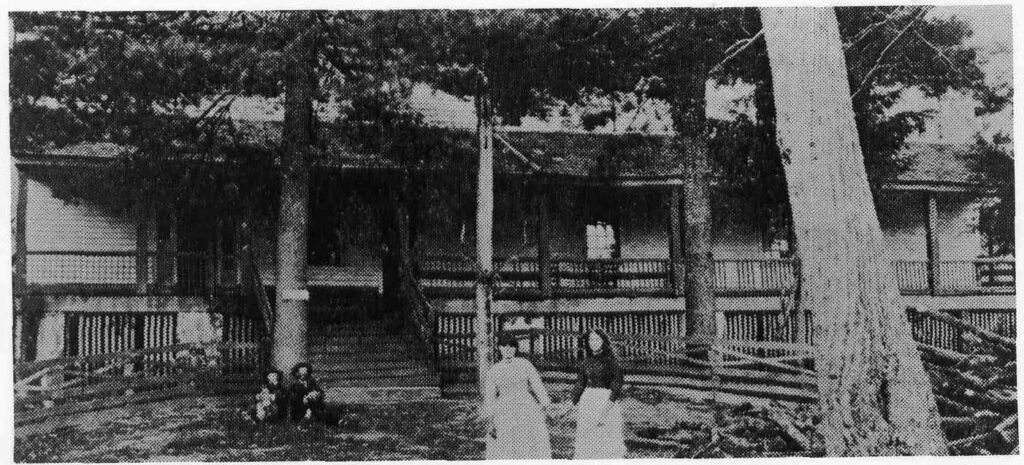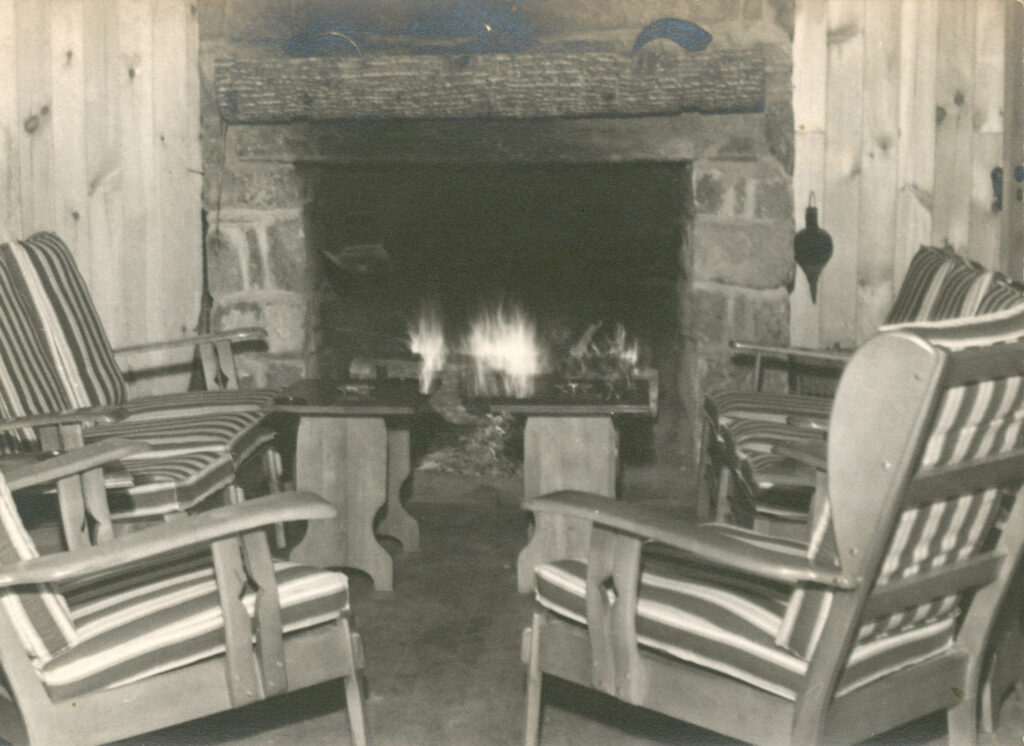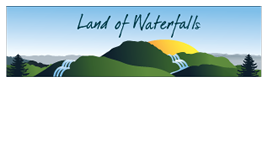
In her 1876 novel, The Land of the Sky, Christian Reid promotes the mountains of western North Carolina for adventure travelers. Reid is speaking of the French Broad and Little River valleys when she says, “Then we have our first glimpse of the magic beauty which will someday make Transylvania famous!” Her adventurers continue on to spend time at the Buck Forest Hotel, exploring the surrounding forests and waterfalls by day and joining in with the evening entertainment and dances.
The hotel was described as a large two-story building, with a long piazza in front and shade-trees drooping all around. It could accommodate “several score persons” and had a big hall for dances.
Around 1830 Micajah Smith Thomas began buying property along the Little River including Bridal Veil Falls, High Falls, Triple Falls and miles of good fishing streams. He had several thousand acres that offered excellent hunting as well. Thomas and his wife, Anna Caroline Hightower Thomas, opened the Cedar Mountain Hotel in the early 1850s.
The 1854-55 General Assembly of the State of North Carolina authorized Thomas, along with Leander S. Gash, David Shuford, Perry Orr and Charles Slagle to lay out a turnpike road through the Little River valley past Shuford’s bridge on the French Broad River and Thomas’ Cedar Mountain house. This provided access from the valley through the mountains to Jones Gap Road and Caesar’s Head.
The first Cedar Mountain post office was located in the hotel. The Thomas’ son, Franklin L.D. Thomas, was the first postmaster from 1856 to about 1865. After the Civil War the post office relocated four miles to the south and took the name of Cedar Mountain with it. The area surrounding the Thomas’ hotel then became known as Buck Forest. Buck Forest had a post office from 1889-1901.

During the Civil War Micajah Thomas was attacked at the hotel by members of Kirk’s Raiders. Kirk’s Raiders was a mounted infantry regiment for the Union made up of mostly North Carolina and Tennessee volunteers who were notorious for their violent raids. As a result of the attack Micajah was blind for the remainder of his life. Soon after this Micajah and Anna went to live with one of their sons.
Around 1870 they sold the hotel and property to Joe McD “Uncle Joe” Carson who operated it as the Buck Forest Hotel for many years. By the early 1900s changes had left the hotel off the beaten path and it had fallen into ruin and was partially collapsed.
Carson sold the property to Colonel Frank Coxe of Asheville. After Coxe’s death his descendents added to the property for a total of 5000-6000 acres. In 1941 Frank Coxe, grandson of Col. Frank Coxe, organized the Buck Forest Club. It was an exclusive club permitting hunting and fishing on the property to its members. Paul F. Roberts built a lodge for the club near High Falls around 1940. It was torn down in the 1970s.
The club leased the property from the Coxe estate until April 1956. In September 1956 E. I. DuPont purchased the Coxe property, plus 5411 in Henderson County known as the Guion Farm to build the first silicon plant in the United States. The property, including the Thomas family cemetery is now part of the DuPont State Forest.
Photographs and information for this column are provided by the Rowell Bosse North Carolina Room, Transylvania County Library. This article is a reprint of a March 31, 2014 article written by local historian Marcy Thompson. For more information, comments, or suggestions, contact NC Room staff at [email protected] or 828-884-1820.



